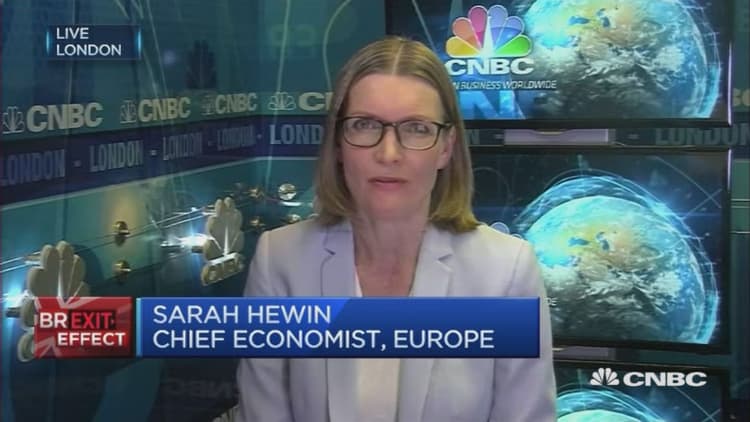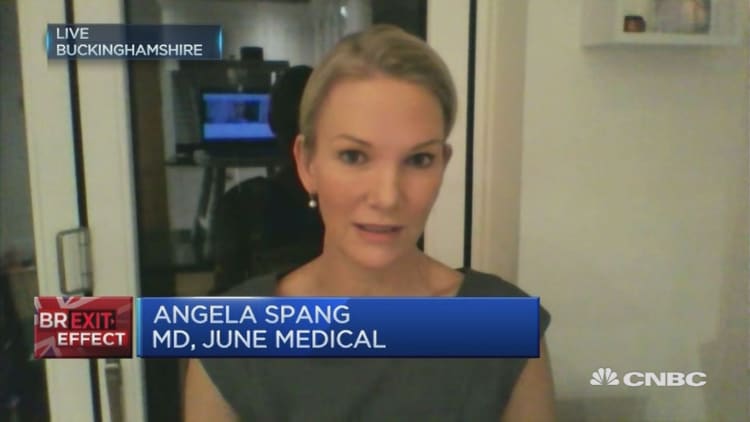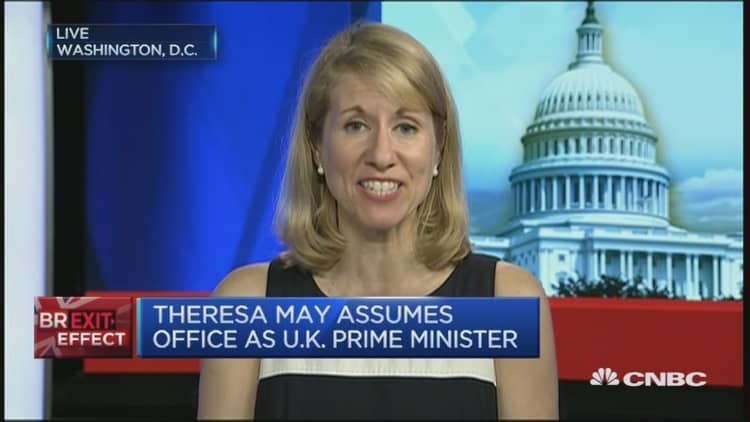


Britain's new Finance Minister Philip Hammond comes with an attribute that has been in short supply in one of the most tumultuous periods in British politics: He's regarded a safe pair of hands.
His appointment following the political shakeup that accompanied Brexit didn't come as a surprise. While Hammond had campaigned to remain in the European Union (EU), like the new Prime Minister Theresa May, he also has a wealth of experience, having previously served as foreign secretary and defense secretary.
"We know Philip Hammond very well in Washington from his time as foreign secretary. I think that's a very steady pair of hands so I think there is growing confidence that we've got a good leadership team," said Heather Conley, director of the Europe Program at CSIS.
"As Theresa May said, it's time to get on with it and now we'll see what the outlines for the negotiations will be," Conley told CNBC Asia's "The Rundown."
Hammond, dubbed "Spreadsheet Phil" in political circles, was a successful businessman before entering parliament. He's also known for his cool demeanor.
And he's going to need it.
The U.K. economy is poised to slump into recession and financial services firms had warned they might decamp to rival financial capitals such as Frankfurt and Dublin if the U.K. decided to leave the political and economic bloc.
The last time the pound was this low against the dollar, television viewers were glued to Dynasty and Wham! ruled the airwaves.
The largest credit assessors have slashed ratings on the country's debt and while the government's borrowing costs have fallen, that's more a sign of frayed nerves than a vote of confidence in Britain's shaky finances.
To begin with, Hammond might have to abandon the belt-tightening that was a key aspect of his predecessor George Osborne's stint at 11 Downing Street. Osborne had pledged to eliminate the budget deficit by 2020.
"Theresa May, the prime minister, has already said that the government won't be trying to eliminate the budget deficit. It's a new approach, no more austerity, so we're expecting that the new chancellor will announce a new set of forecasts for the deficit," said Sarah Hewin, chief economist for Europe at Standard Chartered.
"In our view, it will probably be a wider deficit this year than the last and likely to stay high over the next couple of years," Hewin said.
Hammond will also have to work closely with European partners to ensure an orderly departure from the European Union and engage with financial services firms that are big contributors to the British economy.
Ahead of his appointment, Hammond told the British Bankers' Association he would champion their access to the EU's single market, Reuters reported.

